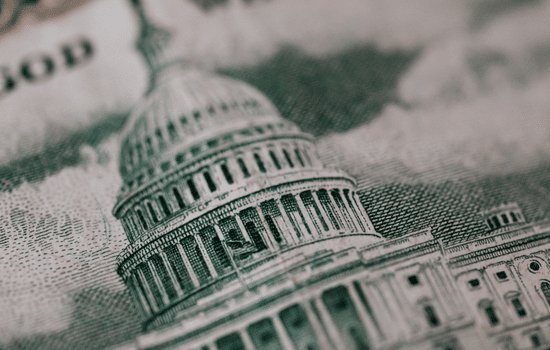Advertisements
The concept of State has been a central aspect of human society for thousands of years.
Unveiling the Fascinating History of Government
Throughout history, individuals have come together to form organized communities for mutual protection, economic cooperation, and political representation.
Advertisements
The idea of a centralized authority to govern these communities has been present in practically all cultures and civilizations.
Two first examples of a state can be found in ancient Sumeria, a civilization that existed not until today in Iraq around 4500 BC.
Advertisements
Suméria was made up of several city-states, each governed by a king and a council of elders.
The state was responsible for maintaining law and order, collecting taxes and providing public benefits and services.
See also:
Everything about the governing authority
Feeding the imagination of every child
In ancient Egypt, Pharaoh was the absolute ruler and considered a divinity.
The pharaoh was responsible for the Egyptian people and was seen as an intermediary between the gods and the people.
The Egyptian state was highly centralized and controlled the economy, religion and political power.
Greek city-states, such as Athens and Sparta, represent another early example of the state.
In Athens, the government was made up of elected officials and a system of direct democracy allowed citizens to participate directly in the decision-making process.
The state was responsible for maintaining law and order, defending the city against foreign invaders, and providing public benefits and services.
In the Middle Ages, the feudal system dominated much of Europe.
Under feudalism, lords and monarchs have political power and control the land and resources of the state.
In this system, individuals deviate loyalty to their senhors and receive protection and land in exchange.
The state plays a limited role in the lives of people, with most of the political power in the hands of nobility.
With the rise of the nation-state in Europe during the 16th and 17th centuries, the state assumed a more central role in people's lives.
The nation-states were defined by a common language, culture and history and were governed by a centralized government.
The State was responsible for providing public benefits and services, maintaining the law and representing the interests of the nation in the international arena.
The impact of government on our lives today
Today the state plays a crucial role in the lives of individuals and communities, and for many reasons why it is seen as a positive force.
One of the most important functions of the State is to provide a structure for law enforcement, guaranteeing that individuals and communities are protected from crime and violence.
Allowing people to live and work in a safe and protected environment, giving them the peace of mind that they need to pursue their goals and aspirations.
Another fundamental role of the State is to provide benefits and public services that benefit the community as a whole.
This includes things such as roads, schools, hospitals and infrastructure that are essential for the functioning of society.
Without the investment of the state in services, many individuals and communities do not have access to the resources they need to live a healthy and productive life.
The State also plays an important role in promoting equality and justice. By means of the creation of laws and regulations.
Helping to ensure that everyone is treated fairly and has access to the same opportunities, regardless of their origin or circumstances.
This helps create a level playing field where everyone can compete on a basis of equality, reducing social and economic inequality.
Additionally, the state provides a structure for political representation, allowing individuals and communities to have a voice in the decisions that affect their lives.
By electing representatives and participating in democratic processes, individuals can influence the course of the State and hold its leaders accountable.
This helps to ensure that the State responds to the needs and wishes of the people it serves.
Finally, the State plays an important role in promoting stability and security in the international arena.
To represent the interests of your cities on a global stage, helping to ensure that your people are protected from external threats and have access to the resources and opportunities they need to succeed.
Through its participation in international organizations and its involvement with other nations, the state helps promote peace, stability and cooperation on a global scale.
From providing a structure to law and order, promoting equality and justice, to representing the interests of your cities, the state is an essential institution that helps guarantee a better future for all.
Unmasking or governing: what do you need to know?
Although the state can certainly play a positive role in people's lives, there are also several reasons why the state can be seen as a negative force.
One of the main criticisms of the State is that it can become corrupt and abuse its power, violating individual rights and liberties.
When the state is dominated by a small group of individuals or controlled by powerful interests, it can be used to promote its interests to the general population.
It may result in unequal treatment, arbitrary application of laws and suppression of dissent.
The state can be inefficient and bureaucratic, resulting in the delivery of low-quality public benefits and services.
The provision of state services can be prejudiced by bureaucracy, inefficiency and lack of responsibility.
Or that it can end up leading to results below the father that do not attend to the needs of people.
It may also be criticized for its tax policies, which may be seen as excessively onerous and unfair.
When the state increases taxes excessively or implements taxes of a regressive nature, it can be difficult for individuals and families to survive.
This can lead to widespread financial difficulties, particularly among the most vulnerable members of society.

The State can be seen as an intruder in people's lives, violating their privacy and freedom.
For example, the state can collect and arm certain people, monitor communications or restrict access to certain benefits and services.
This can be seen as a violation of individual rights and liberties and can lead to a feeling of distrust between people and the State.
Although the State can play a positive role in people's lives, it can also be seen as a negative force.
From corruption and abuse of power to inefficiency and bureaucracy, through intrusive policies, there are many reasons why the State can be seen as harmful to the lives of individuals and communities.
Unlocking the Government – Nosso Caminho para o Progresso
In conclusion, the role of the State's impact on people's lives can be seen as both positive and negative and, ultimately, depends on the measures taken by the State.
A well-functioning state, guided by the principles of equality, justice and responsibility, can provide a structure for security, stability and prosperity for its cities.
On the other hand, a corrupt, inefficient or excessively intrusive state can lead to widespread dissatisfaction and harm the well-being of its citizens.
Ultimately, the State is a crucial institution in the lives of individuals and communities, and its impact can be significant.
It is up to citizens to hold their leaders responsible and demand measures that promote better, and it is up to the State to take the best interest of its people.
Through effective governance and responsible leadership, the State can be a positive force in the lives of people, helping to guarantee a better future for all.




